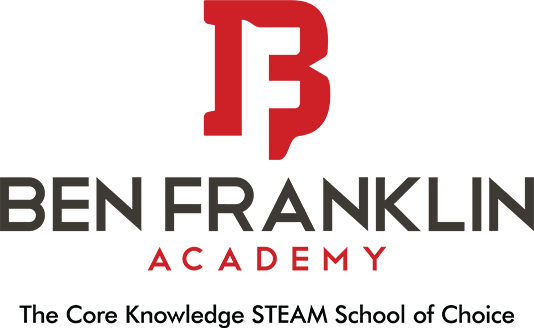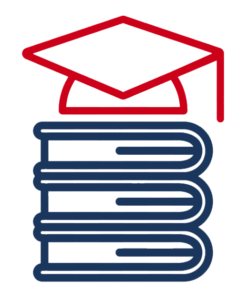Our Preschool Curriculum consists of six components:
- Core Knowledge Preschool Sequence
- Amplify Core Knowledge Language Arts (CKLA)
- Zoo-phonics
- Second Step
- Handwriting Without Tears
- Little Minds at Work Math Curriculum
The Core Knowledge Sequence
The Core Knowledge Preschool Sequence is a set of model guidelines describing fundamental competencies and specific knowledge that, for children from three to five years of age, can provide a solid, coherent foundation for later learning in kindergarten and beyond. The Core Knowledge Sequence recognizes that children are always ready to learn, and they build knowledge based on what they already know.
EXCELLENCE AND FAIRNESS
The Preschool Sequence is offered as another practical step toward the Core Knowledge Foundation’s goal of promoting greater excellence and fairness in early education. Internationally, the most successful educational systems teach a core of knowledge in the early grades. Only by explicitly specifying the competencies and knowledge that all children should share can we guarantee equal access to those competencies and knowledge. In our current system, children especially can suffer from low expectations that often translate into “waiting until they are ready” and watered-down curricula. When expectations are made explicit, however and children are exposed to a coherent core of challenging, interesting competencies and knowledge–they rise to the occasion. This background not only provides a foundation for later learning, but also makes up the common ground for communication in a diverse society.
INTENDED USE OF THE PRESCHOOL SEQUENCE
The Preschool Sequence is intended to guide the planning of experiences and activities for preschool children by offering a coherent progression of skills and knowledge in the following areas:
- Physical Well-Being and Motor Development
- Movement and Coordination
- Social and Emotional Development
- Autonomy and Social Skills
- Approaches to Learning
- Language and Literacy
- Oral Language
- Nursery Rhymes, Poems, Fingerplays and Songs
- Storybook Reading and Storytelling
- Emerging Literacy Skills in Reading and Writing
- Knowledge Acquisition and Cognitive Development
- Mathematical Reasoning and Number Sense
- Orientation in Time and Space
- Scientific Reasoning and the Physical World
- Music
- Visual Arts
Learn more about Core Knowledge.
Core Knowledge Language Arts (CKLA)
Core Knowledge Language Arts is a comprehensive early literacy curriculum, grounded in the Science of Reading. The Pre-K–5 curriculum sequences deep content knowledge-building with research-based foundational skills. CKLA is a literacy curriculum that inspires curiosity and drives results, empowering all students with rich background knowledge. The focus in PreK is to maintain a developmentally appropriate early childhood setting; the structures, routines, and activities are engaging, and children receive a solid foundation for future language arts instruction. CKLA is a unique core curriculum that’s grounded in the Science of Reading and combines rich, diverse content knowledge in history, science, literature, and the arts with systematic research-based foundational skills instruction.
Unlike traditional preschool programs where there is no consistency in content resulting in a wide disparity of knowledge and skills that students possess, the Core Knowledge Sequence supports a smooth transition to kindergarten. Ben Franklin Academy preschoolers will enter kindergarten having attained all of the necessary knowledge and skills to be successful. Ben Franklin Academy is committed to high student achievement year-after-year starting with preschool.
Learn more about Core Knowledge Language Arts.
Zoo-phonics®
Zoo-phonics® is an effective way to teach reading and spelling because it utilizes pictures of animals in the shapes of the lowercase letters. These animals not only teach the children to remember the shapes and sounds of the letters (and letter combinations), but it brings about an excitement to the learning process. Zoo-phonics uses a body movement with the letter’s sound instead of the traditional approach of “I see the word, I say the word, I memorize the word,” which is often difficult for children.
If you’re curious, here’s why: Ten percent of what we hear we remember. Thirty percent of what we hear and see we remember. Forty percent of what we hear, see, and say we remember. But if we hear the information, see it, say it and do it, we remember seventy to one hundred percent! That is why the body movement is so important—it’s the doing part of learning. Research tells us that when the body moves, the brain remembers.
Learn more about Zoo-Phonics.
Second Step
A holistic approach to building supportive communities for every child through social-emotional learning. Second Step Early Learning has been shown to improve young students’ executive-function skills—like attention, memory, and self-control—which are not only predictive of kindergarten readiness but are essential for success in and outside the classroom. When students enter kindergarten with the self-regulation and social-emotional skills taught with evidence-based Second Step Early Learning, they’re set up for success.
THE POWER TO GROW
This concept helps our little learners to harness their energy and potential by teaching them to:
- Listen
- Pay attention
- Manage their behavior
- Get along with others
Learn more about Second Step.
Handwriting Without Tears
Handwriting fluency is fundamental to learning because children think and write at the same time. When we teach children to write, we also teach them how to express themselves. If they struggle to form their letters, their ability to express themselves will suffer. Children who don’t master handwriting may be slow, sloppy, or illegible writers.
Ben Franklin Academy focuses on fun and achievement to optimize children’s curiosity and joy of learning throughout the school. Our goal is to help students learn proper handwriting habits and then apply those habits naturally and automatically to all writing experiences that they’ll take throughout elementary school, high school and beyond.
By playing, singing and building letters, they develop important skills they need to print words, sentences and paragraphs. The readiness and writing lessons teach body awareness, cooperation, taking turns, listening, crayon grip, drawing, building, letter and number recognition, capital letter, and number formation. Children learn to print using hands-on materials and developmentally appropriate activities. Fine motor work gained from the writing readiness program prepares students for pencil and paper success.
Learn more about Handwriting Without Tears.
Math: Little Minds at Work
Little Minds at Work curriculum are teacher-created, kid-tested, and most importantly kid-approved! Pre-K Math takes away that monotonous way of teaching math where students sit and listen to the teacher TEACH math. Instead, Little Minds at Work math encourages guidance from the teacher while the students TEACH and LEARN math through hands-on and engaging math activities with their partners. A preschool “hands on” way of learning!
Units include assessment pieces as a way to ensure student growth over the unit. A few highlights using the Little Minds at Work Units; kids talking about math, kids using manipulatives, activities that are fun + engaging, and learning that requires critical thinking!
Learn more about Little Minds at Work.

